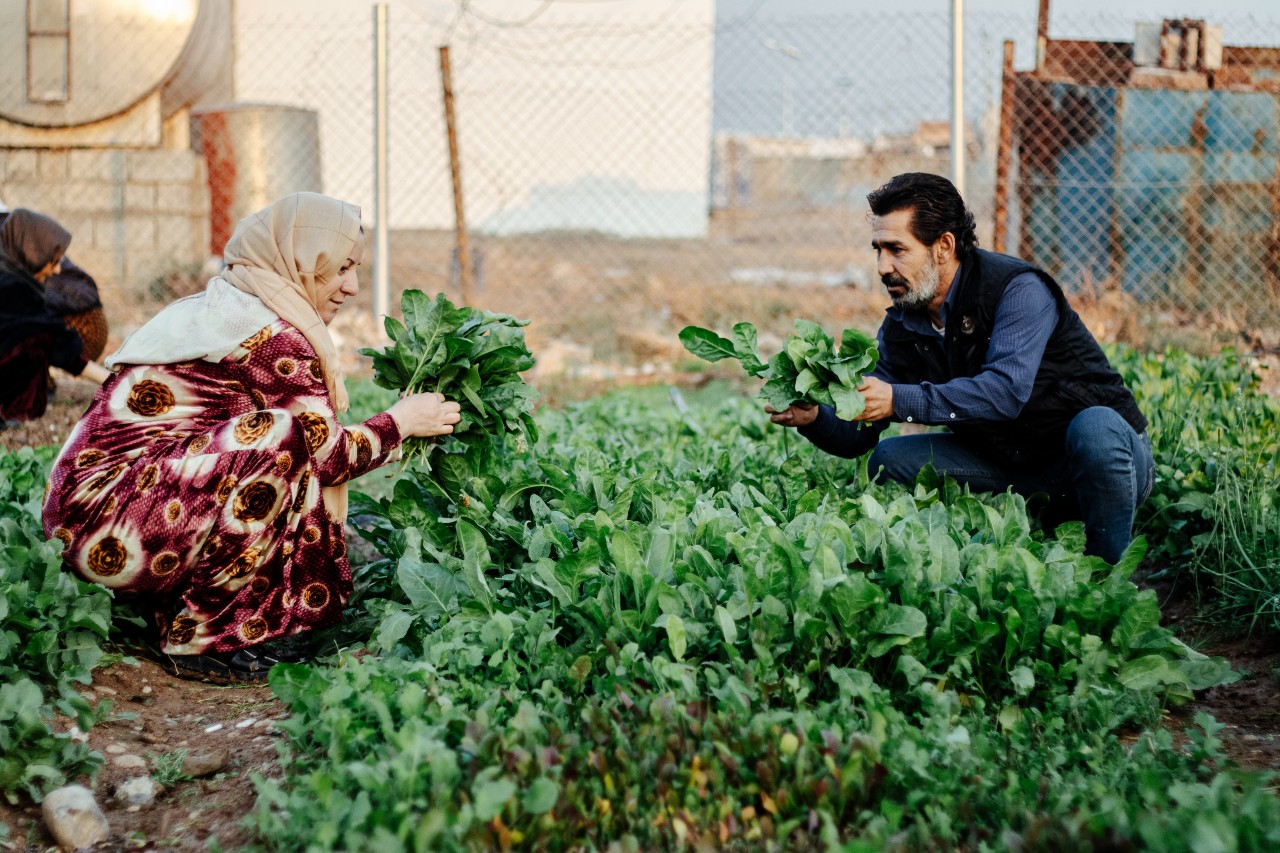The 2021 Global Hunger Index, presented by Cesvi Foundation on the 14th of October, underlines how the link between conflicts, climate change and COVID-19 has an extremely negative impact on the fight against hunger. Iraq is an emblematic case of how these “three Cs” cause severe food insecurity, a country where Cesvi has been working for several years, especially in the autonomous region of Kurdistan, to contrast hunger and prevent conflicts.
The past two years of restrictions imposed by the global pandemic has put a strain on an already fragile country like Iraq, rubbing salt into the open wounds of a territory that struggles to get back after years of bloody conflict, a huge influx of refugees from Syria and the ever more devastating consequences of climate change. A toxic cocktail that has especially compromised the food security of the most vulnerable among refugees, internally displaced persons (IDPs) and host communities.
Conflicts
Iraqi Kurdistan is indirectly affected by the conflict due to the enormous inflow of internally displaced persons and a significant number of Syrian refugees, which have put more pressure on the already scarce existing resources in the area. Refugees fleeing from war and welcomed in Iraq are almost 250,000 and most of them have found shelter right in Kurdistan. On the other hand, 1.2 million internally displaced persons are still waiting to go back to their homes since 2014 when the offensive to counter the Islamic State was launched. The ongoing Syrian crisis has put pressure on food availability due to rising demand and a decrease in imports from Turkey, Iran and Syria. According to FAO estimates, over 730,000 people – mainly refugees and IDPs – are in conditions of severe food insecurity. Altogether, the number of people in need of humanitarian assistance exceeds 4 million.
Climate change
Moreover, the effects of climate change are putting a strain on Iraq’s food security as well. Rising temperatures, water scarcity and decreasing rainfall – the country does not see a drop of rain since last April – are dramatically compromising agricultural production and leading to higher prices for food, seeds and feedingstuff. Furthermore, Iraqi Kurdistan is going through a period of semi-arid climate with negative effects on the livelihood of farmers. Most of them, in fact wholly depend on rainfall to work in their fields, because only 25% of cultivable land is mechanically irrigated.
The COVID-19 pandemic
Containment measures adopted to oppose the spread of COVID-19 – with the halt imposed on trade and economy – have caused food prices to skyrocket, in a country already 50% dependant on imports to satisfy the needs of its population. According to the United Nations, last year an average of 30% of Iraqi households was forced to cut their food expenditure, thus highly reducing food consumption.
Cesvi’s intervention
Cesvi’s mission in Iraqi Kurdistan falls within a perspective of socioeconomic conflict prevention.
Since 2018, Cesvi has been working in the autonomous region of Kurdistan on the side of the most vulnerable local population, Syrian refugees fleeing from their tormented country and IDPs, by focusing on food security as an antidote to war. Cesvi mainly intervenes in the Governorates of Erbil and Duhok, realising income support and food security projects.
“At this moment, we pay a great deal of attention to gender dynamics and people with disabilities, promoting their economic emancipation”, says Lorena D’Ayala Valva, Head of Emergency Unit at Cesvi. Emblematic is in this sense a project addressed to groups of Kurd and Syrian women who are local producers. “Cesvi works in agriculture to train local authorities with capacity building activities. But above all, we work directly with local farmers, supporting them across the whole process from cultivation to distribution and sales”, continues Lorena. To facilitate their access to the market for their products – fruit, jams, plants, flowers and herbs – Cesvi has signed deals with private companies.
At the same time, intending to favour occupation and regular income, Cesvi has put in field interventions such as work placement, training, support to smallholder farmers through the provision of agricultural inputs – as irrigation systems, fertilisers, seeds – and ad hoc training.
